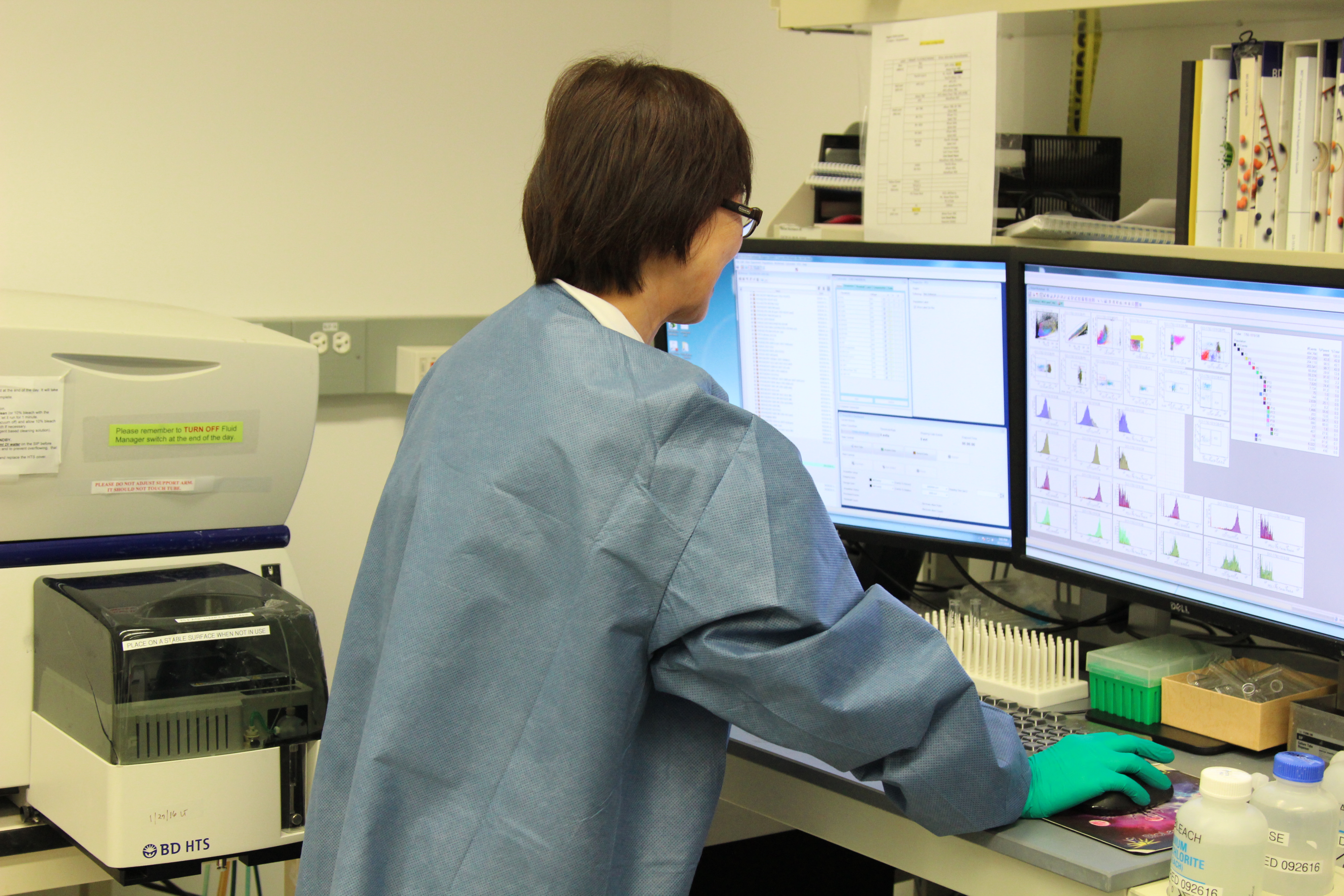
Flow Lab to Develop Blood-Based Allergy Test
As part of our role at the Blood Center, the Flow Cytometry Lab takes donated platelet and red blood cell products and filters out white blood cells called leukocytes, which could be harmful to patients if transfused. So as not to waste any part of the valuable blood our donors generously give, these white blood cells that have been filtered from the transfusable products are made into products called buffy coats or LRS chambers. These cells are then made available to researchers to help them in experiments for finding treatments for a number of diseases, such as cancer and diabetes, to name a few.
Our lab is also involved in developing other laboratory tests that can be performed on blood products to help patients. One of the tests currently in the process for validation is a test to help patients get more accurate results on allergy testing. The current gold standard for allergy testing is the skin test, which is performed by injecting each allergen into the skin, waiting a few days to see if an elevation occurs, and then checking against different criteria to measure whether the elevation signifies an allergy. This process is a relatively slow one and, despite different criteria for assessing the elevation, can be more subjective than is ideal for this sort of assessment.
The test we are working to develop in the lab is called basophil activation test (BAT). Basophils are also white blood cells found in our blood in small numbers. The symptoms experienced by patients during allergic attacks are mediated by the basophils.
In the lab, patients’ whole blood is exposed to possible allergens, and if the patient is allergic, the basophils will react. This reaction, which suggests an indication for that particular allergy, is measured by flow cytometry. Not only does this offer a potentially more accurate test, but also a more efficient one, since patients can receive testing for multiple allergens at the same time.
To read the full spring 2020 edition of PULSE, visit stanfordbloodcenter.org/pulse.
